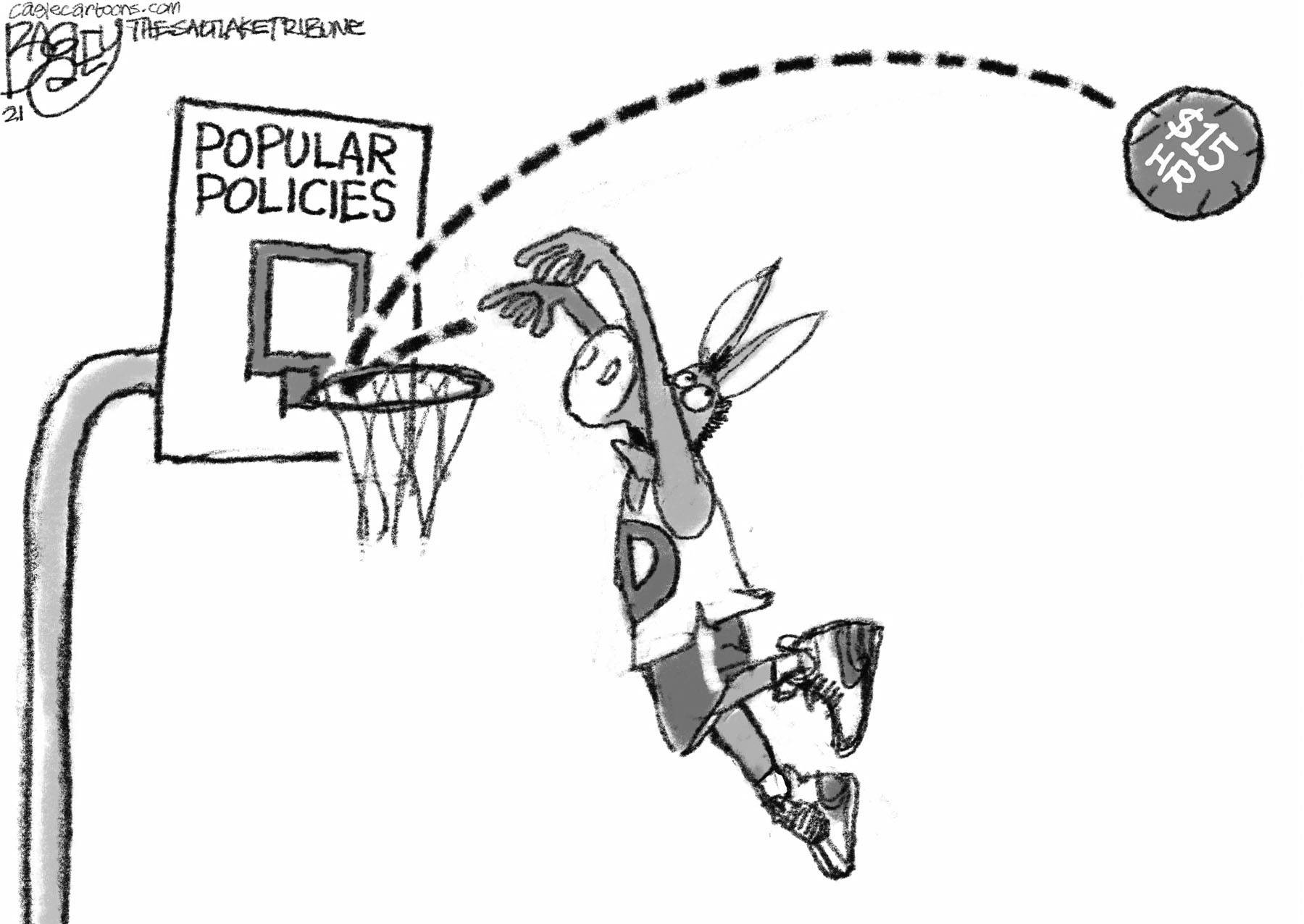The U.S. economy’s rapid recovery from the pandemic is granting workers a rare benefit: As employers rush to hire, prospective employees are gaining a bit of bargaining power. Yet, this welcome modicum of leverage masks a deeper problem: All too often, companies break promises, steal wages and otherwise violate workers’ rights — and get away with it.
U.S. worker protections are scant by international standards. And even these often fail to protect the people they are supposed to. Take the minimum wage and overtime, where firms are estimated to underpay workers illegally to the tune of several billion dollars each year. Or take union organizing, where allegations of companies illegally firing workers abound, whether at Amazon or Google, Boeing or Tesla, Chipotle or McDonald’s, or in hundreds of other cases each year. Too often, the law on the books simply doesn’t translate into reality on the ground.
How can this happen? To understand, I reviewed academic evidence, public data, case records and Freedom of Information Act requests for two of the country’s core workplace protections — the Fair Labor Standards Act, which enshrines federal minimum wage and overtime requirements, and the National Labor Relations Act, which protects workers’ right to unionize.
The conclusion: For many firms, low penalties and a low likelihood of being caught mean it’s simply profitable to break the law. And even if most firms would prefer to obey, just a few bad actors can generate a race to the bottom by undercutting law-abiding competitors.
Underpaying the minimum wage or failing to pay overtime is analogous to theft: The employer deprives the worker of money she is legally due. Yet, unlike property theft, routinely punished by imprisonment, wage theft typically incurs minimal penalties. Federal law in principle enables the imposition of hefty costs on violators.
But in practice, the Department of Labor usually requires them to pay only the wages owed — with just a few paying additional damages, only 6% paying a civil monetary penalty, and less than 0.01% criminally convicted. The small cost of lawbreaking generates little incentive to comply.
Perhaps low penalties wouldn’t matter so much if all violators were caught. They rarely are. The Labor Department lacks enforcement resources, as evidenced by estimates of the annual probability of an investigation for a given firm: Even in high-risk industries, it’s typically in the single digits.
Many violations are so complex or well-hidden that workers don’t know they have been underpaid, and hence don’t complain. Even when workers are aware, fear of employer retaliation or entanglement with the authorities can keep them quiet.
The incentive for employers to comply with union protections is even weaker. The NLRA imposes no financial penalty for illegally firing a worker for union organizing; it merely requires the offending firm to reinstate the dismissed worker with compensation for lost earnings (minus anything earned in the interim) — at a maximum cost, for most firms, in the tens of thousands of dollars.
That’s negligible compared with the benefit to shareholders of preventing unionization. One academic study suggests that unionization can reduce a typical firm’s shareholder value by about 10%. No wonder an estimated 20% to 30% of unionization elections entail the firing of at least one worker.
These obstacles to organizing help explain why only 6% of U.S. private sector workers are unionized, even though half of nonunion workers say they would vote for a union. As Kim Bobo recounts in her 2011 book “Wage Theft in America”: “I always ask, ‘What would happen if you tried to organize a union at your workplace?’ Every single time the response is the same: ‘I would get fired.’”
How then to improve the situation? Better resources matter: The Labor Department, for example, has less than half as many wage and hours inspectors, relative to covered workers, as it did in the 1970s. But meaningful deterrence also requires much greater use of penalties and criminal sanctions (as already happens in some states), and possibly individual liability and public sector debarment for the most serious offenders.
In the case of union organizing, some of this much-needed deterrence may come in the form of the PRO Act. Recently passed by the House of Representatives and supported by the White House, the act would (among other things) substantially increase the penalties firms face for violating union protections. Senate Democrats are aiming to add elements of the act, including the penalty provisions, to a budget reconciliation bill that can pass Congress with a simple majority.
Republicans and Democrats alike proclaim the dignity of work. Ensuring compliance with our existing labor and employment laws should be the very least that everyone can agree on. Minimum wages and union organizing protections are meaningless if rights on paper do not translate into rights in practice.
Anna Stansbury has a Ph.D. in economics from Harvard University and is a nonresident senior fellow at the Peterson Institute for International Economics.


